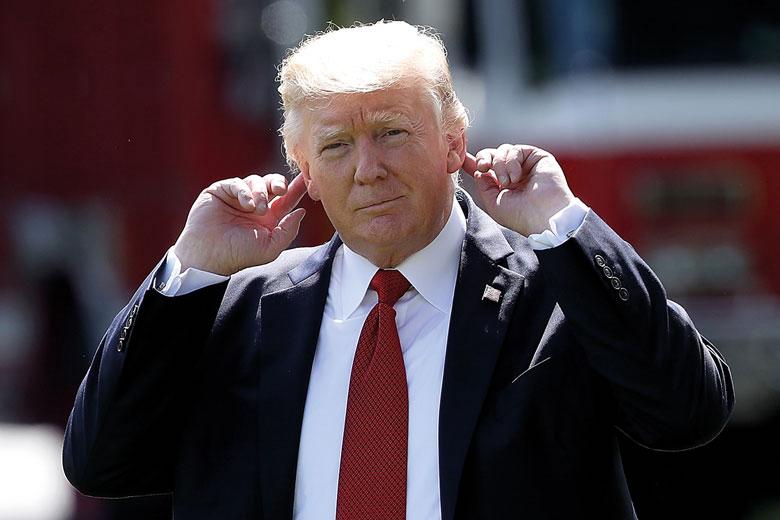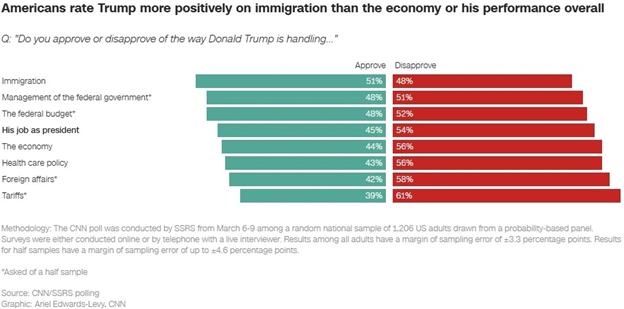Strategizing from 7 cities across the globe
Does Public Opinion REALLY Matter to Trump’s Administration?
Amidst the Occident-Orient wars of the 21st century and the unending systemic inequalities, it is about time to look into how public opinion has shaped the status quo. This short article tackles the difference between what public opinion ought to be and what it really is. This is done through examining the impact of public opinion on Trump’s administration.
CIVIL SOCIETYDEMOCRACYJOURNALISMINTERNATIONAL LAWPOLITICS
Marina Daniel
5/21/20255 min read


Amidst the Occident-Orient wars of the 21st century and the unending systemic inequalities, it is about time to look into how public opinion has shaped the status quo. This short article tackles the difference between what public opinion ought to be and what it really is. This is done through examining the impact of public opinion on Trump’s administration.
Defining the Status-Quo
As I write this article, the world is experiencing disastrous events. The United States of America is backing Israel as it continues its war against civilians in Gaza, Palestine. Meanwhile, Israel continues to bomb the South of Lebanon and the Southern Suburb of Beirut. As for Syria, Israeli aircrafts carried out two attacks on military targets near Damascus lately, said the war monitor from the Syrian Observatory for Human Rights (SOHR). Yemen has also suffered from the Israeli and American expansionist agenda, as American air strikes pounded Yemen this month. Egypt, bordering Rafah and Gaza, has been in an undeniably unlucky position. Israel has consistently refused to acknowledge Egypt as a partner in conflict resolution, preferring instead to portray it as part of the problem. The situation over the border in Sinai is escalating as Netanyahu’s administration is insisting on the plan of ethnic cleansing and the relocation of Gazans to Sinai, Egypt.
In early 2025, Trump acclaimed power, and since then, a number of presidential decrees were made, making it clear that America is the first ally to Israel and all its expansionist policies, acting as a strategic destabilizer to the region. Trump’s major decisions were: 1. The cut of US-AID funds all over the world, 2. Turning Gaza into a riviera while expelling its residents to neighboring states, 3. Eradicating the Department of Education, 4. Raising tariffs to 6 trillion dollars, among many other decisions.
What Should the Actual Role of Public Opinion Be?
Public opinion is as old as the notion of democracy. If we consider Greek philosophers to be the founders of the concept of democracy, they have argued that for institutions to be operative, they had to be constructed upon public sentiments. In other words, public engagement shapes and determines the type of governance. Nevertheless, public opinion, the collective preferences of people, is more complex than simply following the majority’s will. In this concise article, I will use the term ‘public opinion’ to refer to its influence rather than its intricate dynamics.
In theory, public opinion is not only a tool for expression, but also for shaping and reshaping, directing and redirecting policies and governance. Chinman and Wandersman (1999) argue that citizens’ solidarity is of vital importance economically; in other words, the community is most likely to spend money for funding public projects if they feel integrated into the system. Public services and policies that have been implemented without the integration of the people have proven their failure due to the fact that they overlooked their material need for the public. Participation is praised for being capable of repairing any damage by maintaining a mutual relationship of trust between the authorities and the public, partly as a result of improved dialogue and higher understanding in regards to both parties. Likewise, McCoy, Krumpe and Cowles (1994), and Chinman and Wandersman (1999) all agree that public opinion and active participation have been able to grant legitimacy for authorities, ensure accountability, minimize conflicts, provide innovative ideas, safeguard long-term developmental achievements, divide responsibilities, and build cooperation.
What Is the Actual Contribution of Public Opinion Now?
In reality, given our current world structure, I would argue that governments shape public opinion to achieve their desired outcomes rather than allowing the public to make informed decisions and shape their present and future. This is commonly referred to as State-sponsored propaganda. In other words, governments get to use the media as a tool to manufacture consent, seeking to shape public opinion according to their interests. Governments commonly resort to such tools to secure legitimacy, maintain control, and promote a specific agenda.
With such growing influence that is not always overt, there is a growing risk of authoritarianism, which endangers civil liberties and undermines the rule of law. This dynamic can deeply erode public trust. According to a CNN poll that was conducted from March 6 to 9, 2025 among a random sample of 1,206 US adults, 54 percent of the study participants showed their disapproval of most of Trump’s administration policies.


According to the Pew Research Center, over half of U.S. adults (53%) now view Israel unfavorably—an increase from 42% in March 2022, prior to the October 7, 2023 Hamas attack and the subsequent Israeli military operation in the Gaza Strip. Confidence in Israeli Prime Minister Benjamin Netanyahu remains relatively low among Americans, with only 32% expressing confidence, according to a recent survey conducted from March 24 to 30 among a nationally representative sample of 3,605 U.S. adults. Nevertheless, a week later, Trump openly invited Netanyahu to the White House on the 9th of April and re-expressed his active willingness to move the Gazan population to any neighboring country. On a side note, it’s important to highlight that Netanyahu has traveled to Hungary despite the International Criminal Court’s arrest warrant issued against him over alleged war crimes in Gaza, raising serious concerns about how a figure officially accused of such crimes can move freely without facing accountability.
It is becoming clear that public approval or disapproval of a particular policy or direction holds little weight in determining future actions. While administrations may use polling data to gauge public sentiment, such insights rarely guide actual governance. In many cases, widespread public discontent reflected in polls may simply prompt more decisions to be made behind closed doors rather than encouraging transparency or responsiveness.
Conclusion
Generally, the role of public opinion has always varied from issue to issue. However, public opinion seems to be much more effective in influencing policy making at the local level than at the state or national levels. One reason for this is that issues of concern to local governments—such as the condition of roads, schools, and hospitals—are less complex than those dealt with by governments at higher levels.
It has become increasingly evident that the role of public opinion—meant to guide and hold administrations accountable—is being systematically ignored and dismissed. In the case of the American public’s perception of the Trump administration, this disregard is especially stark: despite more than half of the population consistently expressing disapproval, the administration has shown little to no effort to respond or adapt. While it is common for governments to attempt to shape public opinion to align with their agendas, it is far rarer for public sentiment to influence actual policy and practice. However, what we are witnessing now goes even further—not only has the government failed to reflect or be shaped by public opinion, it has also failed to even acknowledge it. The disconnection is so profound that public discontent is treated not as a signal for change, but as an irrelevant noise, easily overlooked.
references
Chinman, M. and Wandersman, A. (1999). The benefits and costs of volunteering in community organizations. Nonprofit and voluntary sector quarterly, Volume 28(1), 46-64
McCoy, K. Krumpe, E. and Cowles, P. (1994). The principles and processes of public involvement. Retrieved from: http://www.webpages.uidaho.edu/css486/pi_synthesis_paper.pdf
Levy, A. (2025). New CNN Poll: Americans are negative on Trump’s handling of economy. Retrieved from: https://edition.cnn.com/2025/03/12/politics/cnn-poll-trump-economy/index.html
Silver, L. (2025). How Americans view Israel and the Israel-Hamas war at the start of trump’s second term. Pew Research Center. Retrieved from: https://www.pewresearch.org/short-reads/2025/04/08/how-americans-view-israel-and-the-israel-hamas-war-at-the-start-of-trumps-second-term/
